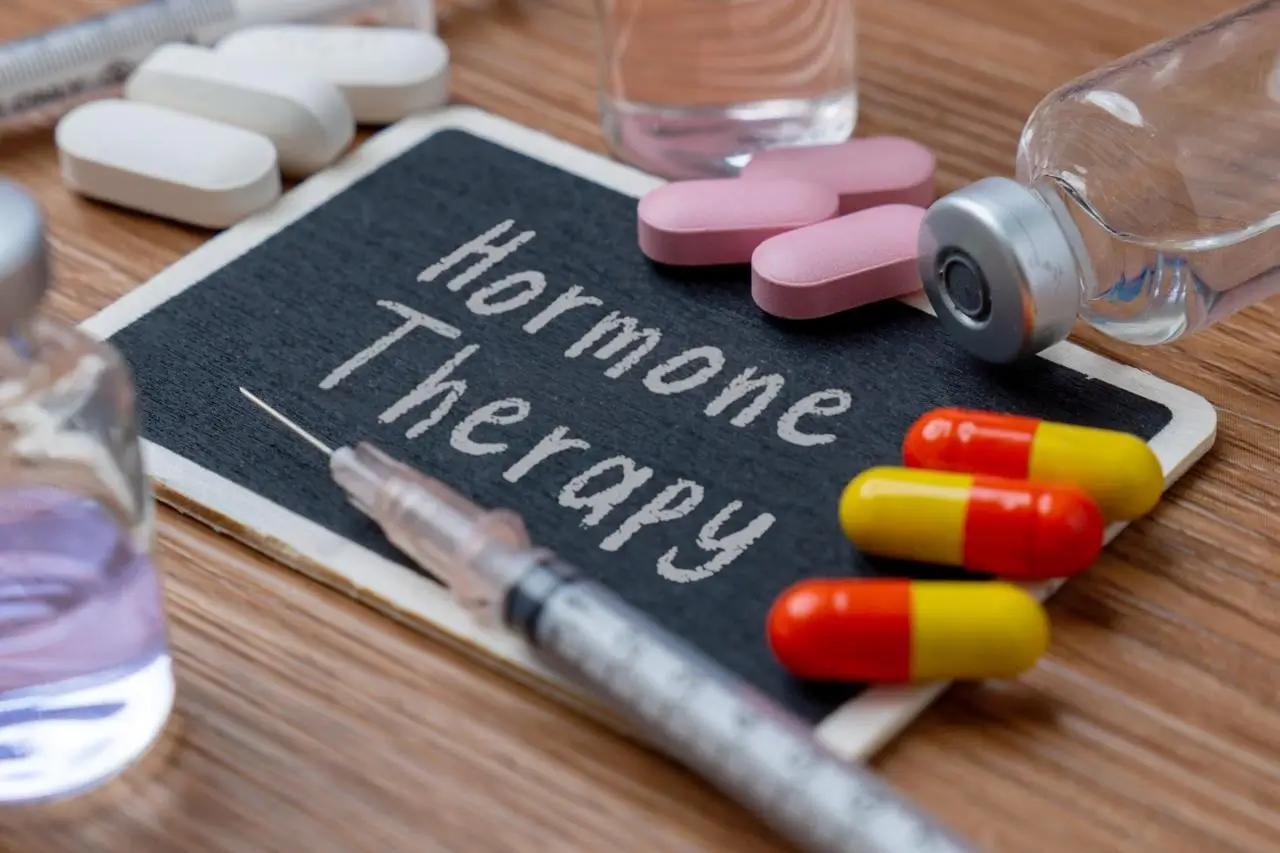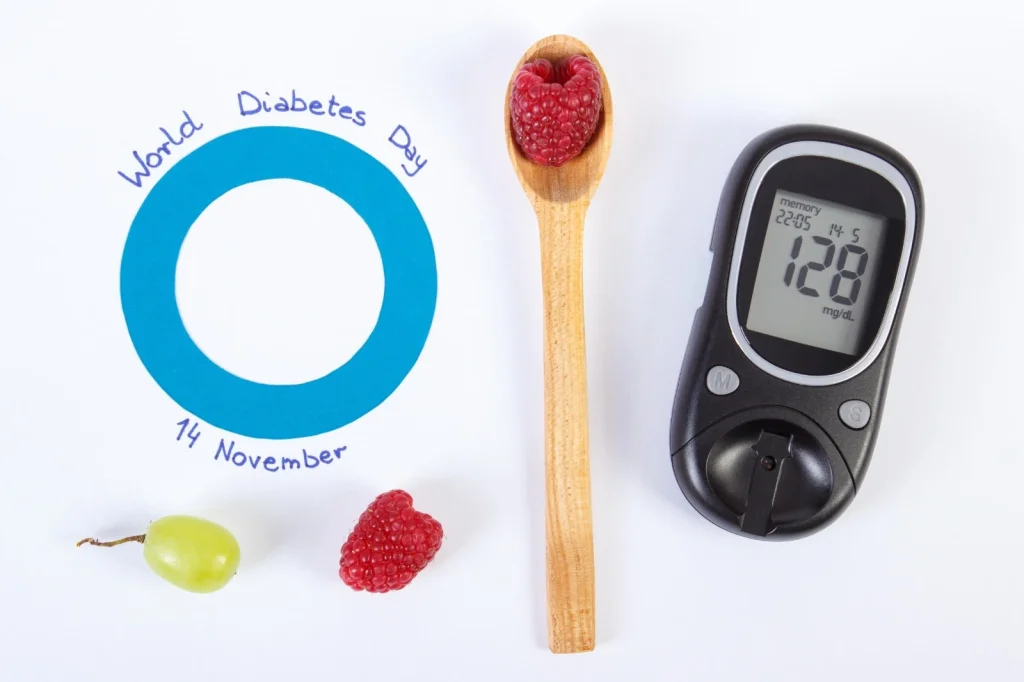

Every year on World Diabetes Day, millions around the globe pause to honour a condition that doesn’t always speak loudly — but always speaks. Diabetes often begins as a whisper inside the body before it becomes a diagnosis on paper. A whisper that sounds like fatigue, irritability, cravings, restless nights, slow healing or a tiredness that feels older than you are.
For women, especially those navigating PCOS, perimenopause, or menopause, this whisper can be even harder to hear — and easier to overlook. Hormonal transitions change the way the body responds to insulin, processes sugar, and manages energy. And because women are conditioned to “push through,” many don’t recognise the signs until the body finally demands attention.
World Diabetes Day is not just awareness — it’s an invitation.
An invitation to listen. To understand. To support. And to honour the body with compassion rather than fear.
Created in 1991 by the International Diabetes Federation and the WHO, World Diabetes Day is observed every year on November 14 — the birthday of Sir Frederick Banting, one of the discoverers of insulin.
Why does this day matter so much?
Because over 537 million adults worldwide live with diabetes.
Because 1 in 3 women in India is at high risk without knowing it.
Because hormonal transitions uniquely change the way women experience symptoms.
Because most people only discover diabetes years after their body began signalling distress.
This day reminds us that diabetes isn’t just a medical condition — it’s a metabolic story that unfolds slowly in the body, shaped by genetics, hormones, stress, food, movement, sleep, and emotional wellbeing.
Diabetes is often framed as a “sugar” problem.
In reality, it’s a communication problem between insulin and the cells.
Before sugar rises on paper, the body sends softer signals — especially in women.
Here’s how insulin resistance and glucose dysregulation often show up in day-to-day life:
When sugar fluctuates at night, the nervous system stays alert.
You may wake up feeling:
Tired
Sweaty
Thirsty
Restless
Anxious for no reason
Particularly for:
Sweets
Bread
Tea/coffee
Fried snacks
This isn’t a “lack of willpower.”
It’s your body asking for immediate glucose because insulin isn’t doing its job.
Glucose swings can mimic PMS-like mood changes even outside the menstrual cycle.
That 3 PM slump is often insulin resistance in disguise.
The kind that no amount of sleep can fix.
Not because of eating more — but because insulin is a fat-storing hormone.
Glucose instability triggers inflammation pathways.
These signs appear long before blood sugar rises.
That’s why World Diabetes Day exists — to bring awareness before it becomes a diagnosis.
Women go through unique hormonal transitions that change the body’s relationship with glucose.
Let’s understand them one by one:
Up to 70% of women with PCOS experience insulin resistance.
Why? Because high androgens affect how cells respond to insulin.
Women may notice:
Belly weight
Cravings
Irregular cycles
Acne
Mood swings
Fatigue
Supporting insulin resistance can significantly ease PCOS symptoms.
Between ages 35–50, estrogen begins fluctuating unpredictably.
Estrogen influences insulin sensitivity — so when estrogen drops suddenly, blood sugar rises suddenly too.
This makes perimenopausal women more prone to:
Mood dips
Night sweats
Sudden hunger
Poor sleep
Foggy thinking
Belly weight gain
This is not “ageing.”
It’s physiology.
After menopause, estrogen drops to its lowest sustained level.
Low estrogen → increased insulin resistance → higher blood sugar.
Many women who never struggled with weight, energy, or cravings suddenly start experiencing them during menopause.
Understanding this connection is vital — and World Diabetes Day serves as a reminder that women need more support, not more pressure.
Diabetes is often discussed in numbers: fasting glucose, HbA1c, insulin levels.
But behind every number, there is a real human story.
Women often share emotional experiences like:
“I’m doing everything right but my body isn’t responding.”
“Why am I so tired all the time?”
“Why do I feel older than I should?”
“I don’t feel like myself anymore.”
“I feel guilty for wanting comfort foods.”
Blood sugar imbalance isn’t just a physical challenge — it impacts emotional identity, self-esteem, relationships, productivity, and mental peace.
That’s why a compassionate approach always works better than a restrictive one.
On World Diabetes Day, it’s important to dispel a major myth:
Sugar isn’t just in desserts.
It’s in:
Tea with milk & sugar
Packaged snacks
Roti, rice, bread
Fruit juices
Breakfast cereals
Biscuits
Fried foods
Stress (yes, cortisol raises sugar too!)
Understanding this helps women make choices rooted in awareness, not fear.
Managing blood sugar doesn’t need extreme diets or fear-based restrictions.
Gentle lifestyle shifts make a measurable difference.
Add protein + fibre to each meal.
This slows glucose release.
One of the most powerful ways to lower post-meal sugar.
Not “zero sugar,” but balanced sugar.
Cortisol spikes glucose even without food.
Poor sleep → higher morning sugar.
Especially for:
PCOS (Miror PCOS)
Perimenopause (Miror Bliss)
Menopause (Miror Thrive)
Fatigue during your 30s (Miror Revive) and after 65 (Miror MILY)
Natural supports like Magnesium, Shatavari, Lodhra, Ashwagandha, Fenugreek, etc. can help — when chosen thoughtfully.
No two women have the same body, same hormones, same emotional history, or same life stressors.
That’s why one-size-fits-all solutions don’t work.
Women need:
A listening ear
A personalised plan
Nutritional guidance
Emotional support
Hormonal understanding
Practical lifestyle tools
On World Diabetes Day, we honour not just the condition — but the human experience behind it.
If you notice:
Sudden weight changes
Tiredness that lingers
Broken sleep
Belly weight
Mood fluctuations
Constant cravings
Irregular cycles
Brain fog
Family history of diabetes
…your body might be signalling the early stages of glucose imbalance.
Seeking help early isn’t fear — it’s empowerment.
Diabetes is not a failure.
It’s not a moral verdict.
It’s not a punishment.
It’s simply the body saying:
“I need support. Please listen.”
And the beautiful thing about the body is —
when we listen, it responds.
With nourishment.
With rest.
With better sleep.
With clearer energy.
With steadier moods.
With renewed strength.
On this World Diabetes Day, take a moment to pause.
To notice how your body feels today.
To honor the small signals it sends.
To remember that support, stability, and balance are possible — and deeply deserved.
Because every woman deserves a life where her body feels safe, steady, familiar, and fully hers again.
If you’re ready for guidance, compassionate support is just a step away.
This blog is written in that spirit.
World Diabetes Day raises awareness about how hormonal changes during PCOS, perimenopause, and menopause increase insulin resistance, making women more vulnerable to blood sugar imbalances.
Women may notice fatigue, cravings, mood shifts, irregular sleep, frequent urination, increased thirst, or unexpected weight gain—often long before lab results show abnormal glucose levels.
Fluctuating estrogen levels during perimenopause can reduce insulin sensitivity, causing sudden glucose spikes, cravings, hot flashes, and increased belly fat.
Yes. Balanced meals, post-meal walks, better sleep, stress management, and consistent routines play a powerful role in stabilizing glucose and improving metabolic health.
They can schedule a blood sugar check, review their symptoms, make mindful food choices, prioritize movement, and seek personalised guidance from a nutritionist or clinician.



 ×
×

